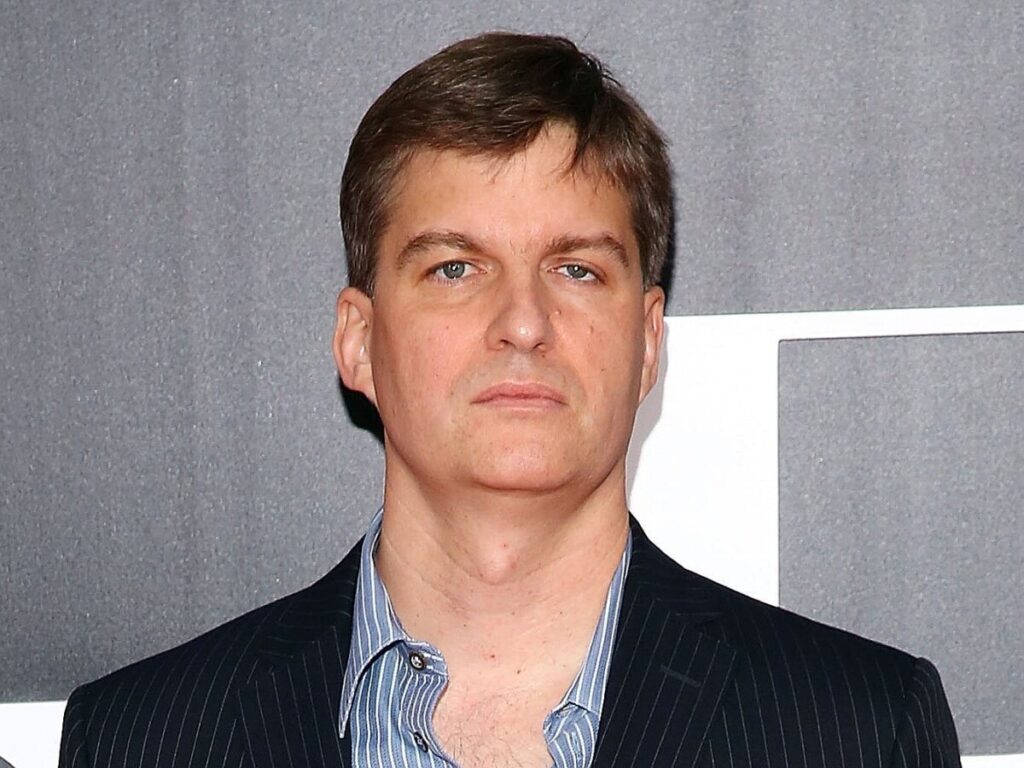‘Big Short’ investor Michael Burry deregisters his hedge fund, saying he’s moving on to ‘much better things’
Michael Burry, the renowned investor known for his pivotal role in the 2008 financial crisis immortalized in “The Big Short,” has made headlines once again by terminating Scion Asset Management’s registration with the SEC. This decision signifies that Burry will no longer manage external clients’ funds, a move he hinted at in a recent post on X (formerly Twitter), where he stated that he is “on to much better things.” As of late March, Scion Asset Management was managing approximately $155 million across four accounts, but Burry’s latest actions suggest a shift in focus away from traditional hedge fund operations. His deregistration comes on the heels of a bearish stance against major AI stocks like Nvidia and Palantir, which he believes are overvalued due to speculative trading reminiscent of the dot-com bubble.
Burry’s recent investment strategies have sparked discussions in the financial community, particularly after he revealed his portfolio included bearish put options on Nvidia and Palantir. This revelation triggered a public exchange with Palantir’s CEO, Alex Karp, who dismissed Burry’s bets as “batshit crazy.” Burry clarified the details of his investment, correcting reports that exaggerated his position against Palantir to nearly a billion dollars. Instead, he disclosed that he purchased 50,000 put option contracts, amounting to a total investment of $9.2 million. His comments about the current market—where the S&P 500 and Nasdaq 100 have reached record highs—echo a broader sentiment among contrarian investors who caution against the unsustainable valuations driven by AI hype.
Burry’s decision to close Scion Asset Management is not unprecedented; he made a similar move in 2008 after his successful short against the housing bubble, and he has since operated with a limited number of external clients. This trend of high-profile investors transitioning to family offices allows them to escape the pressures of managing outside capital while still maintaining a significant presence in the market. Burry’s social media activity suggests he is gearing up for a new venture, with an announcement expected on November 25. His shift away from client management may grant him more freedom to express his views and navigate market opportunities without the constraints typically associated with hedge fund management. As he embarks on this new chapter, Burry continues to capture attention, underscoring his status as a keen observer of market dynamics and a bold investor unafraid to challenge prevailing narratives.
Michael Burry, the investor of “The Big Short” fame.
Astrid Stawiarz/Getty Images
Michael Burry of “The Big Short” fame has terminated Scion Asset Management’s SEC registration.
Burry posted on X that he’s “on to much better things” after betting against Nvidia and Palantir.
The contrarian investor foreshadowed the decision, writing the “only winning move is not to play.”
Michael Burry
of “The Big Short” fame has terminated his hedge fund’s SEC registration, signaling that he’ll no longer manage money for external clients.
Scion Asset Management was deregistered on Monday, according to regulatory disclosures. Burry’s fund managed about $155 million for four accounts in late March, per its most recent Form ADV filing.
Burry posted a screenshot of Scion’s terminated status in an X post on Wednesday evening. The contrarian investor foreshadowed the move in a previous post on October 30, his
first
since April 2023.
So, I bought 50,000 of these things for $1.84.
Each of those things is 100 doodads.
So I spent $9,200,000,
Not $912,000,000.
@CNBC
@WSJ
@FT
Each of those doodads let me sell
$PLTR
at $50 in 2027.
That was done last month.
On to much better things Nov 25th.
pic.twitter.com/9Voy3nwiTD
— Cassandra Unchained (@michaeljburry)
November 13, 2025
“Sometimes, we see bubbles,” he wrote. “Sometimes, there is something to do about it. Sometimes, the only winning move is not to play.”
In
subsequent posts
, he compared the artificial intelligence boom to the dot-com bubble, fueling fresh concerns that AI speculation has driven stock valuations to unsustainable levels, with the S&P 500 and Nasdaq 100 hitting record highs recently.
Burry shot to fame for predicting — and profiting from — the 2008 US housing market crash. His
massive bet
against the housing bubble was chronicled in the book and movie “The Big Short.”
The Scion boss rattled financial markets last week when his firm’s third-quarter portfolio update
revealed
it owned bearish put options on two leading AI stocks, Nvidia and Palantir, as of September 30.
Palantir CEO Alex Karp and Burry
traded barbs
after the disclosure. Karp described Scion’s bets as “batshit crazy” in a televised interview, prompting Burry to
retort
on X that he wasn’t surprised Karp “cannot crack a simple 13F.”
In his X post on Wednesday, Burry called out media outlets for reporting he’d bet $912 million against Palantir. He clarified that he’d purchased 50,000 put option contracts on Palantir stock, each covering 100 shares with a premium of $1.84 per share, for a total outlay of $9.2 million.
“That was done last month,” he wrote. “On to much better things Nov 25th.”
Burry has been teasing his next move and his “unchained” status for several days.
As of Thursday morning, his X bio reads: “Official X account for ‘The Big Short’ Michael Burry, M.D.,
dubbed ‘Cassandra’ by Warren Buffett
. Now unchained -??? launches Nov 25th, Stay Tuned!”
This isn’t goodbye
Burry made a similar move in 2008 after his big short paid off. He closed Scion Capital after facing intense pressure from clients, with some demanding their money back before the housing bubble finally burst. He relaunched it as Scion Asset Management in 2013, tightly controlling its number of external clients.
Burry is one of several high-profile investors who’ve
closed their doors
to outside capital. Doing so can release them from the pressures of answering to clients and being responsible for their money, and duties such as writing quarterly letters and talking them through key positions.
John Paulson, who along with Burry, was one of the few people to successfully short the housing bubble,
converted
his hedge fund into a family office in 2020.
Even when big-name investors cash out their clients, they can still be significant market players with their own money.
Billionaires
David Tepper
, who owns the Carolina Panthers and runs Appaloosa Management, and
Stanley Druckenmiller
, who worked with George Soros and runs Duquesne Capital, handed back external funds years ago but are still closely followed on Wall Street.
Similarly, Leon Cooperman of Omega Advisors has continued to be an active stock picker and
prominent commentator
since converting his hedge fund into a family office in 2018.
The late
Julian Robertson
, who founded hedge fund Tiger Management, arguably grew more influential after he returned outside money and began focusing on seeding former employees and promising investors.
The so-called
Tiger Cub funds
have spawned a generation of billionaire investors such as Chase Coleman, Andreas Halvorsen, Philippe Laffont, and more.
Burry may be handing his clients their money back, but his social-media posts suggest he’s not going anywhere — and may feel more liberated to say and do what he wants.
Read the original article on
Business Insider
Eric
Eric is a seasoned journalist covering Business news.



